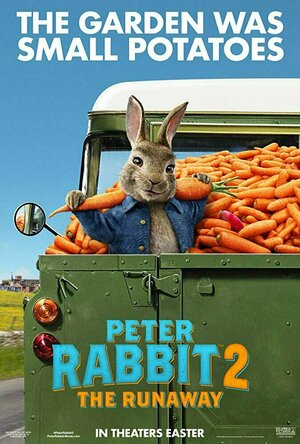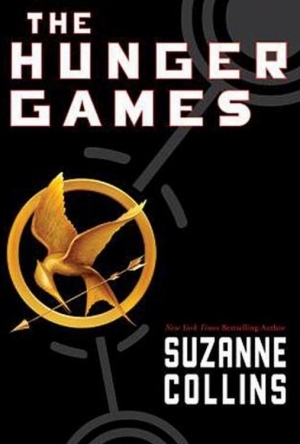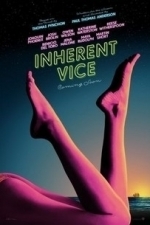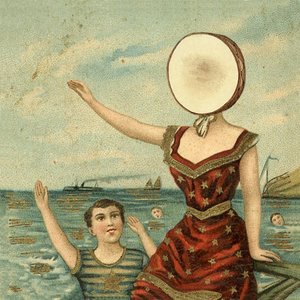Search
Search results
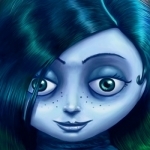
Amelia - Story Book for Kids
Book and Games
App
One of the most interactive story books for iPad, iPhone and iPod touch. Discover unique adventure...
Bob Mann (459 KP) rated Peter Rabbit 2: The Runaway (2021) in Movies
Jul 25, 2021
Script this time appeals to both Kids and Adults (1 more)
Gleeson, Byrne and Oyelowo are great together
This bunny has legs
I appreciate I'm over 2 months late in seeing "Peter Rabbit 2". But the grandkids were staying for the weekend and wanted to see it again!
Positives:
- This time the movie manages - "Paddington 2" style - to find a good balance between slapstick jokes that appeal to the target younger audience (my grandkids were roaring at certain bits) and the 'dragalong' adult audience. Some of these are gorgeously surreal - like the skiing badger in the Alps as a "university prank". It certainly passes the "6 laugh" test for a comedy, and generated a couple of good guffaws (the Austin Powers landing in the Aston Martin and the subsequent take-off was one for me).
- In the first movie, James Corden's voicing of Peter Rabbit tended to grate with me enormously. Here he gamely plays up to that, accepting that he is a bit of a "marmite" character with a lot of people. It's a fine comic moment.
- Rose Byrne and Domnhall Gleeson make a cute and watchable couple. (Rose Byrne could read the phone directory for me). They are well supported here by David Oyelowo ("Don't look into his eyes") who is the least villainous villain in any movie in recent memory! Also fun are trying to spot the guest voice artistes who include Margot Robbie, Sia, Elizabeth Debicki, Sam Neill, Lennie James and Hayley Atwell.
Negatives:
- A few of the jokes don't quite land (a one-note cockeral story, for example, is overplayed).
- As I've been doing some Supporting Artist work recently, I've become obsessed with observing Extras and the continuity of Extras in shots. There are a few inconsistencies in the mix on this one!
Summary Thoughts: It's fair to say (although I never actually wrote a full review for it) that I was NOT a fan of the original Peter Rabbit movie from 2018. Corden grated; there was not enough for adult viewers and some of the included scenes were highly questionable: try explaining to a three-year-old why Peter was stabbing a dead old man in the eye with his finger! I've avoided watching it again on the TV like the plague.
This sequel was, I thought, much better, being entertaining for both kids and adults. I wonder if I now watched the first movie I might find it, in hindsight, more palatable? Perhaps I will give it a try sometime.
(For the full graphical review, please check out One Mann's Movies on t'interweb, Facebook or Tiktok. Thanks.)
Positives:
- This time the movie manages - "Paddington 2" style - to find a good balance between slapstick jokes that appeal to the target younger audience (my grandkids were roaring at certain bits) and the 'dragalong' adult audience. Some of these are gorgeously surreal - like the skiing badger in the Alps as a "university prank". It certainly passes the "6 laugh" test for a comedy, and generated a couple of good guffaws (the Austin Powers landing in the Aston Martin and the subsequent take-off was one for me).
- In the first movie, James Corden's voicing of Peter Rabbit tended to grate with me enormously. Here he gamely plays up to that, accepting that he is a bit of a "marmite" character with a lot of people. It's a fine comic moment.
- Rose Byrne and Domnhall Gleeson make a cute and watchable couple. (Rose Byrne could read the phone directory for me). They are well supported here by David Oyelowo ("Don't look into his eyes") who is the least villainous villain in any movie in recent memory! Also fun are trying to spot the guest voice artistes who include Margot Robbie, Sia, Elizabeth Debicki, Sam Neill, Lennie James and Hayley Atwell.
Negatives:
- A few of the jokes don't quite land (a one-note cockeral story, for example, is overplayed).
- As I've been doing some Supporting Artist work recently, I've become obsessed with observing Extras and the continuity of Extras in shots. There are a few inconsistencies in the mix on this one!
Summary Thoughts: It's fair to say (although I never actually wrote a full review for it) that I was NOT a fan of the original Peter Rabbit movie from 2018. Corden grated; there was not enough for adult viewers and some of the included scenes were highly questionable: try explaining to a three-year-old why Peter was stabbing a dead old man in the eye with his finger! I've avoided watching it again on the TV like the plague.
This sequel was, I thought, much better, being entertaining for both kids and adults. I wonder if I now watched the first movie I might find it, in hindsight, more palatable? Perhaps I will give it a try sometime.
(For the full graphical review, please check out One Mann's Movies on t'interweb, Facebook or Tiktok. Thanks.)

Enlight Photofox
Photo & Video and Lifestyle
App
You’ll never believe what you can create on iPhone with Enlight Photofox. Whether you’re an...

Busy Shapes 2
Education and Games
App
Are you looking for a fun and enjoyable learning experience for children from the age of 4,...
Rachel King (13 KP) rated The Hunger Games in Books
Feb 11, 2019
Right away this book captures my attention with a quick introduction to Katniss's survival skills followed by the District 12 Hunger Games lottery, a grim holiday that nobody wants to celebrate, but is still mandatory. It does not take long for the reader to feel sympathetic towards Katniss and the hardship she struggles with everyday just to survive.
Every detail leading up to the actual event of the Hunger Games has a surreal feel, as Katniss is primped and paraded like a beauty pageant contestant, as if everyone is ignoring the fact that these are children, with all but one facing imminent death. This is reality television meets the ancient gladiator games of Rome, combined with the sick irony of using a nation's most precious commodity -- its children. As a mother of three, I can not even fathom living in a country that tolerated this year after year. These Hunger Games are the country's way of preventing rebellion in its citizens through fear, brainwashing, and desensitization, as it is mandatory for every citizen to watch. In some districts, this is so successful that children are routinely trained specifically for the Hunger Games, volunteering to face murder and death for a chance at fame and fortune.
The love triangle is obvious early on, though the conflict can't come into play until the second book in the series. Peeta is the one in the spotlight, the one that humanizes Katniss for the viewers and makes her likable due to his own romantic feelings for her. Unfortunately, Katniss is too busy staying alive to be certain of her true feelings, even though she can pretend well enough to convince even Peeta. Peeta is self-sacrificing, while Katniss is observant and resourceful. Katniss is able to avoid becoming a cold-hearted murderer only because of Peeta's presence.
Regarding the actual Game, those that run it operate to keep the entertainment value up, adding to the danger of the contestants still alive, handing out gifts to give one an edge over another, forcing contestants into battle to increase bloodshed and drama, and generally treating the twenty-four as actors and actresses in any other fictional television drama. What Katniss keeps returning to is how "normal" these people of the Capitol see of the deaths of these children. It occurred to me while reading this that it would be better to be one of those that died in the Games, rather than live with being the monster responsible for the deaths of twenty-three other children purely for the entertainment of the shallow and self-absorbed.
This book is both shocking and heart-rending, and I look forward to the next installment, Catching Fire.
Every detail leading up to the actual event of the Hunger Games has a surreal feel, as Katniss is primped and paraded like a beauty pageant contestant, as if everyone is ignoring the fact that these are children, with all but one facing imminent death. This is reality television meets the ancient gladiator games of Rome, combined with the sick irony of using a nation's most precious commodity -- its children. As a mother of three, I can not even fathom living in a country that tolerated this year after year. These Hunger Games are the country's way of preventing rebellion in its citizens through fear, brainwashing, and desensitization, as it is mandatory for every citizen to watch. In some districts, this is so successful that children are routinely trained specifically for the Hunger Games, volunteering to face murder and death for a chance at fame and fortune.
The love triangle is obvious early on, though the conflict can't come into play until the second book in the series. Peeta is the one in the spotlight, the one that humanizes Katniss for the viewers and makes her likable due to his own romantic feelings for her. Unfortunately, Katniss is too busy staying alive to be certain of her true feelings, even though she can pretend well enough to convince even Peeta. Peeta is self-sacrificing, while Katniss is observant and resourceful. Katniss is able to avoid becoming a cold-hearted murderer only because of Peeta's presence.
Regarding the actual Game, those that run it operate to keep the entertainment value up, adding to the danger of the contestants still alive, handing out gifts to give one an edge over another, forcing contestants into battle to increase bloodshed and drama, and generally treating the twenty-four as actors and actresses in any other fictional television drama. What Katniss keeps returning to is how "normal" these people of the Capitol see of the deaths of these children. It occurred to me while reading this that it would be better to be one of those that died in the Games, rather than live with being the monster responsible for the deaths of twenty-three other children purely for the entertainment of the shallow and self-absorbed.
This book is both shocking and heart-rending, and I look forward to the next installment, Catching Fire.
Rachel King (13 KP) rated Shalador's Lady (The Black Jewels, #8) in Books
Feb 11, 2019
I found this book to be a very satisfying continuation of Lady Cassidy's story from The Shadow Queen (Black Jewels, Book 7). Even though a Bishop wields a substantial cast of characters between the pages of this book, each character is given his or her time in the spotlight, from my series favorites, such as Surreal and Daemon, to newer characters like Gray and Ranon. Each one has a subplot to work through, yet all loose ends are resolved quite neatly. I enjoyed how the plot would switch seamlessly between the story arcs of Cassidy's realm and Jaenelle's realm without taking away from either.
This book seemed to give the reader a glimpse into how the tainting of the Blood occurred by how good men could become bound to bad Queens. Kermilla played the role perfectly by how naive and self-centered she behaved, making her completely oblivious to the trouble she was creating. It is easy to see what Theran sees in her, because it is clear to me that were she to ever learn to use her strengths for the good of others instead of herself, she could become a very powerful force. Though I could not stand Kermilla from the very beginning, I think her character has too much potential not to use her in further books in the Black Jewels series.
The Kindred of the Blood continue to take a vital role in the progression of the plot, which I find both ingenious and quite humorous, as they are unpredictable in many ways. With the Kindred involved, there is guaranteed to be surprises - both good and bad. I could easily see a Kindred-centered novella come out of this book.
My favorite part of this book was watching the transformation of Gray into Jared Blaed as him and Cassidy fall in love. The progression is slow without feeling dragged out, and each stage has its rewards, with his casual relationship with Jaenelle's inner circle, as well as his introduction into Cassidy's circle. I'm a bit disappointed that Bishop did not create a way for Gray to gain the power he missed out on the first time, simply because it feels like he was punished for what he had no control over in his past.
I also love the humor that Bishop interjects so effortlessly into the plot, such as the interactions between Ranon and Gray and the rest of Jaenelle's court. The same old chemistry is still there with all of the "former court," and I have to wonder if the references to her court don't indicate a coming change in future books. I greatly look forward to the next installment in the Black Jewels series, Twilight's Dawn: A Black Jewels Book.
This book seemed to give the reader a glimpse into how the tainting of the Blood occurred by how good men could become bound to bad Queens. Kermilla played the role perfectly by how naive and self-centered she behaved, making her completely oblivious to the trouble she was creating. It is easy to see what Theran sees in her, because it is clear to me that were she to ever learn to use her strengths for the good of others instead of herself, she could become a very powerful force. Though I could not stand Kermilla from the very beginning, I think her character has too much potential not to use her in further books in the Black Jewels series.
The Kindred of the Blood continue to take a vital role in the progression of the plot, which I find both ingenious and quite humorous, as they are unpredictable in many ways. With the Kindred involved, there is guaranteed to be surprises - both good and bad. I could easily see a Kindred-centered novella come out of this book.
My favorite part of this book was watching the transformation of Gray into Jared Blaed as him and Cassidy fall in love. The progression is slow without feeling dragged out, and each stage has its rewards, with his casual relationship with Jaenelle's inner circle, as well as his introduction into Cassidy's circle. I'm a bit disappointed that Bishop did not create a way for Gray to gain the power he missed out on the first time, simply because it feels like he was punished for what he had no control over in his past.
I also love the humor that Bishop interjects so effortlessly into the plot, such as the interactions between Ranon and Gray and the rest of Jaenelle's court. The same old chemistry is still there with all of the "former court," and I have to wonder if the references to her court don't indicate a coming change in future books. I greatly look forward to the next installment in the Black Jewels series, Twilight's Dawn: A Black Jewels Book.
Rachel King (13 KP) rated Shalador's Lady (The Black Jewels #8) in Books
Feb 11, 2019
I found this book to be a very satisfying continuation of Lady Cassidy's story from The Shadow Queen (Black Jewels, Book 7). Even though a Bishop wields a substantial cast of characters between the pages of this book, each character is given his or her time in the spotlight, from my series favorites, such as Surreal and Daemon, to newer characters like Gray and Ranon. Each one has a subplot to work through, yet all loose ends are resolved quite neatly. I enjoyed how the plot would switch seamlessly between the story arcs of Cassidy's realm and Jaenelle's realm without taking away from either.
This book seemed to give the reader a glimpse into how the tainting of the Blood occurred by how good men could become bound to bad Queens. Kermilla played the role perfectly by how naive and self-centered she behaved, making her completely oblivious to the trouble she was creating. It is easy to see what Theran sees in her, because it is clear to me that were she to ever learn to use her strengths for the good of others instead of herself, she could become a very powerful force. Though I could not stand Kermilla from the very beginning, I think her character has too much potential not to use her in further books in the Black Jewels series.
The Kindred of the Blood continue to take a vital role in the progression of the plot, which I find both ingenious and quite humorous, as they are unpredictable in many ways. With the Kindred involved, there is guaranteed to be surprises - both good and bad. I could easily see a Kindred-centered novella come out of this book.
My favorite part of this book was watching the transformation of Gray into Jared Blaed as him and Cassidy fall in love. The progression is slow without feeling dragged out, and each stage has its rewards, with his casual relationship with Jaenelle's inner circle, as well as his introduction into Cassidy's circle. I'm a bit disappointed that Bishop did not create a way for Gray to gain the power he missed out on the first time, simply because it feels like he was punished for what he had no control over in his past.
I also love the humor that Bishop interjects so effortlessly into the plot, such as the interactions between Ranon and Gray and the rest of Jaenelle's court. The same old chemistry is still there with all of the "former court," and I have to wonder if the references to her court don't indicate a coming change in future books. I greatly look forward to the next installment in the Black Jewels series, Twilight's Dawn: A Black Jewels Book.
This book seemed to give the reader a glimpse into how the tainting of the Blood occurred by how good men could become bound to bad Queens. Kermilla played the role perfectly by how naive and self-centered she behaved, making her completely oblivious to the trouble she was creating. It is easy to see what Theran sees in her, because it is clear to me that were she to ever learn to use her strengths for the good of others instead of herself, she could become a very powerful force. Though I could not stand Kermilla from the very beginning, I think her character has too much potential not to use her in further books in the Black Jewels series.
The Kindred of the Blood continue to take a vital role in the progression of the plot, which I find both ingenious and quite humorous, as they are unpredictable in many ways. With the Kindred involved, there is guaranteed to be surprises - both good and bad. I could easily see a Kindred-centered novella come out of this book.
My favorite part of this book was watching the transformation of Gray into Jared Blaed as him and Cassidy fall in love. The progression is slow without feeling dragged out, and each stage has its rewards, with his casual relationship with Jaenelle's inner circle, as well as his introduction into Cassidy's circle. I'm a bit disappointed that Bishop did not create a way for Gray to gain the power he missed out on the first time, simply because it feels like he was punished for what he had no control over in his past.
I also love the humor that Bishop interjects so effortlessly into the plot, such as the interactions between Ranon and Gray and the rest of Jaenelle's court. The same old chemistry is still there with all of the "former court," and I have to wonder if the references to her court don't indicate a coming change in future books. I greatly look forward to the next installment in the Black Jewels series, Twilight's Dawn: A Black Jewels Book.
Gareth von Kallenbach (980 KP) rated Inherent Vice (2015) in Movies
Aug 6, 2019
“Inherent Vice” Follows Doc (Joaquin Phoenix), a private investigator, as he falls down a dark rabbit hole into a world of crime and systemic corruption.
Phoenix is a transformative actor, delving deep into his role. We’ve seen him do it before in movies like “Walk the Line.” He becomes his character to the point that it is conceivable this just might be the real him.
It is set in bohemian 1970s California. Everything from the way the camera captures the scene, to the outfits that adorn the characters, exudes a hippy-grunge vibe.
The film encompasses multiple genres including crime, comedy, and drama.
Similar to movies like “The Big Lebowski,” it is filled with humorous moments as Doc, a well-meaning and laid back stoner, is constantly found in the middle of the proverbial shit.
When his ex-girlfriend Shasta Fay (Katherine Waterston) reappears one random day, telling him of a plot to kidnap her billionaire boyfriend and then disappears shortly after, Doc becomes consumed by his investigation into her whereabouts. He is led into a conspiracy-like web of drugs, crime, and corruption.
It is not a typical movie with a coherent storyline, rather it is an experience of what Doc goes through as a mind bending mystery unfolds before him.
Strange, subtle details leave a trail of breadcrumbs for the audience to follow along with Doc, as he tries to make some sense out of the connections he stumbles across.
The plot transpires in a blur, floating into the perceptions of the audience like the winding smoke of an opium den. With a few dull moments, it drags on at times, much like the reality of human experience tends to do.
The musical selection only adds to the film’s tantalizing stylistic ambiance – at times it’s a dull and prolonged high, other times it’s a seedy bluesy underground, or absolute instrumental lunacy. Interestingly, much of the music was composed by Radiohead lead guitarist Jonny Greenwood.
Adding to the intricacy and authenticity of the film, is a brief cameo by what is perhaps the most psychedelic band of our time, The Growlers. This moment will only be recognized by fans who are paying close attention, but is an absolutely fitting detail.
Director Paul Thomas Anderson adapted the film from the original novel written by Thomas Pynchon. Like reading a novel, the film is consuming. But because it goes by much quicker than reading a book, it may need to be watched several times for the viewer to grasp exactly what happened.
Audiences will leave theaters with a resonating feeling of pure delirium from the cerebral experience that is “Inherent Vice.”
A surreal masterpiece, I give “Inherent Vice” 5 out of 5 stars.
Phoenix is a transformative actor, delving deep into his role. We’ve seen him do it before in movies like “Walk the Line.” He becomes his character to the point that it is conceivable this just might be the real him.
It is set in bohemian 1970s California. Everything from the way the camera captures the scene, to the outfits that adorn the characters, exudes a hippy-grunge vibe.
The film encompasses multiple genres including crime, comedy, and drama.
Similar to movies like “The Big Lebowski,” it is filled with humorous moments as Doc, a well-meaning and laid back stoner, is constantly found in the middle of the proverbial shit.
When his ex-girlfriend Shasta Fay (Katherine Waterston) reappears one random day, telling him of a plot to kidnap her billionaire boyfriend and then disappears shortly after, Doc becomes consumed by his investigation into her whereabouts. He is led into a conspiracy-like web of drugs, crime, and corruption.
It is not a typical movie with a coherent storyline, rather it is an experience of what Doc goes through as a mind bending mystery unfolds before him.
Strange, subtle details leave a trail of breadcrumbs for the audience to follow along with Doc, as he tries to make some sense out of the connections he stumbles across.
The plot transpires in a blur, floating into the perceptions of the audience like the winding smoke of an opium den. With a few dull moments, it drags on at times, much like the reality of human experience tends to do.
The musical selection only adds to the film’s tantalizing stylistic ambiance – at times it’s a dull and prolonged high, other times it’s a seedy bluesy underground, or absolute instrumental lunacy. Interestingly, much of the music was composed by Radiohead lead guitarist Jonny Greenwood.
Adding to the intricacy and authenticity of the film, is a brief cameo by what is perhaps the most psychedelic band of our time, The Growlers. This moment will only be recognized by fans who are paying close attention, but is an absolutely fitting detail.
Director Paul Thomas Anderson adapted the film from the original novel written by Thomas Pynchon. Like reading a novel, the film is consuming. But because it goes by much quicker than reading a book, it may need to be watched several times for the viewer to grasp exactly what happened.
Audiences will leave theaters with a resonating feeling of pure delirium from the cerebral experience that is “Inherent Vice.”
A surreal masterpiece, I give “Inherent Vice” 5 out of 5 stars.
